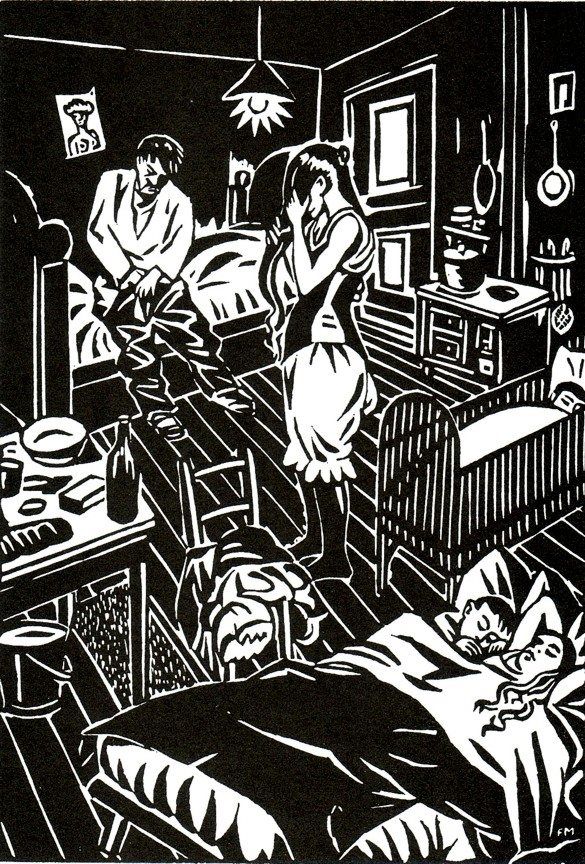
- Engbersen, G., & Van der Veen, R. (1987). Moderne armoede: Overleven op het sociaal minimum. Leiden: Stenfert Kroese.
- Engbersen, G. (2006 [1990]). Publieke bijstandsgeheimen: Het ontstaan van een onderklasse in Nederland (met een nieuwe introductie). Amsterdam: Amsterdam University Press.
- Engbersen, G., Schuyt, K., Timmer, J., & Van Waarden, F. (2020 [1993]). Cultures of unemployment: A comparative look at unemployment and urban poverty. With an introduction by William Julius Wilson. Routledge
- Engbersen, G., Vrooman, C., & Snel, E. (Eds.). (2000). Balans van het armoedebeleid: Vijfde jaarrapport armoede en uitsluiting in de reeks Arm Nederland. Amsterdam: Amsterdam University Press.
- Andere tijden, Arm & Rijk, 31 oktober 2022
- Godfried Engbersen, bestaansonzekerheid en kansengelijkheid, VNG Jaarcongres, Groningen 13 juni 2023
- Follow the money podcast, Voorzitter Commissie sociaal minimum Godfried Engbersen: ‘De participatiesamenleving is op een fiasco uitgelopen’, 19 november 2023
- Godfried Engbersen vertelt over het verhelpen van armoede in Nederland – Studio Erasmus, 21 november 2024.
- Godfried Engbersen, Les langages de la détresse. Le Monde Diplomatique, septembre 1999
- Godfried Engbersen, Who are you calling poor? Le Monde Diplomatique, September 1999
- Godfried Engbersen, Sluit je ogen niet voor de onderklasse van de 21e eeuw. NRC Handelsblad 17 juni 2006

- Burgers, J & Engbersen, G. (1996). Globalisation, migration, and undocumented immigrants. Journal of Ethnic and Migration Studies, 22(4), 619-635
- Engbersen, G., Van San, M., & Leerkes, A. (2006). A room with a view: Irregular immigrants in the legal capital of the world. Ethnography, 7(2), 209-242.
- Engbersen, G., Van der Leun, J. & De Boom, J. (2007). The fragmentation of migration and crime. Crime and Justice, 35(1), 389-452.
- Engbersen, G., & Broeders, D. (2009). The state versus the alien: Immigration controls and strategies of irregular immigrants. West European Politics, 32(5): 867-885.

- Snel, E., Engbersen, G., & Leerkes, A. (2006). Transnational involvement and social integration. Global networks: A journal of transnational affairs, 6(2): 285-308.
- Engbersen, G. & Snel, E. (2013). Liquid migration: dynamic and fluid patterns of post-accession migration flows. In B. Glorius, I. Grabowska-Lusińska, & A. Kuvik (Eds.), Mobility in transition: Migration patterns after EU enlargement (pp. 21-40), Amsterdam: Amsterdam University Press.
- Dekker, R., & Engbersen, G. (2014). How social media transform migrant networks and facilitate migration. Global networks: a journal of transnational affairs, 14(4), 401-418.
- Dekker, R. R., Engbersen, G., Klaver, J., & Vonk, H. (2018). Smart refugees: How Syrian asylum migrants use social media information in migration decision-making. Social Media + Society, 4(1), 1-11.
- Godfried Engbersen, Fourfold labour migration after EU Enlargement, Transnationalism Workshop Maastricht, Maastricht School of Governance/UNU-Merit, 14 December 2011
- Godfried Engbersen, Refugees and the role of the social media, Serie ‘The Challenges to the Humanities in the 21st Century’, organized by SWPS University Interdisciplinary Doctoral Studies Program, Warsaw 29 March 2017
- Godfried Engbersen, minicollege over de nieuwe verscheidenheid, 1 oktober 2018, Studio Erasmus Rotterdam.
- Godfried Engbersen, O wee de journalist die zich niet conformeert, De Volkskrant, 25 januari 2003
- Godfried Engbersen, Minder migratie? Dan zijn harde keuzes vereist, NRC Handelsblad, 27 januari 2024

- Engbersen, G., Snel, E., & Kremer, M. (2018) The fall of the middle class? Stability and vulnerability in the middle segment of society. The Hague: The Netherlands Scientific Council for Government Policy.
- Custers, G., & Engbersen, G. (2021). The urban class structure: Class change and spatial divisions from a multidimensional class perspective. Urban Geography, 43(6), pp. 917-943
- Kremer, M., Went, R. & Engbersen, G. (2021) Better work. The Impact of Automation, Flexibilization and Intensification of Work. Springer
- Engbersen, G. (2022). De maatschappelijke impact van COVID-19: Sociologie van een pandemie’ in: Stéfanie André, Tim Reeskens, Beate Völker (Eds.), De Sociologie en de Pandemie: Inzichten en Vooruitblik na Twee Jaar Coronacrisis. Tilburg: Open Press Tilburg University, pp. 166-181.
- Godfried Engbersen, De gespleten identiteit van Rotterdam. Rotterdamlezing 2010.
- Godfried Engbersen, Burgerparticipatie en sociale ongelijkheid: een Mattheus-effect? Kenniswerkplaats Leefbare Wijken, Rotterdam 11 juni 2015
- Godfried Engbersen, Stedelijke rellen als maatschappelijke vraagstuk. Webinar KNAW, Onrust op straat. Een avondklok met onverwachte gevolgen, Amsterdam 4 februari 2021
- Godfried Engbersen, De laag-vertrouwensamenleving, Collectieve kracht bijeenkomst, Eindhoven 16 juni 2023
- Godfried Engbersen, Meng die wijk maar met mate, NRC Handelsblad 7 februari 2009
- Godfried Engbersen & Erik Snel, Als de burger het zelf moet doen, blijven arme buurten achter, NRC Handelsblad 11 juni 2015
- Godfried Engbersen, Monique Kremer & Robert Went, De middenklasse verdwijnt niet, maar is wel onzeker geworden, Sociale Vraagstukken 5 juli 2017

- Engbersen, G. (2001). The unanticipated consequences of panopticon Europe: Residence strategies of illegal immigrants. In V. Guiraudon & C. Joppke (Eds.), Controlling a new migration world (pp. 222-246). Routledge.
- Engbersen, G. (2009). Fatale remedies: Over de onbedoelde gevolgen van beleid en kennis. Amsterdam University Press.
- Grabowska I., & Engbersen, G. (2016). Social remittances and the impact of temporary migration on an EU sending country: The case of Poland. Central and Eastern European Migration Review, 5(2), 99-117.
- Engbersen, G., Snel, E., & Esteves, A. (2016). Migration mechanisms of the middle range: On the concept of reverse cumulative causation. In O. Bakewell, G. Engbersen, M. L. Fonseca, & C. Horst (Eds.), Beyond networks: Feedback in international migration (pp. 205-230). Palgrave MacMillan.
- Godfried Engbersen, Examining Migration Dynamics: Networks and Beyond, University of Oxford, 24-26 September 2013
- Godfried Engbersen, Verzorgingsstaat als fatale remedie? NRC Handelsblad 12 februari 1992
- Godfried Engbersen, Fortuyn danst op het fundament van Paars, NRC Handelsblad 2 april 2002
- Godfried Engbersen, Wat werkelijk telt. Hoe politieke grenzen gekozen remedies bepalen. In J. Uitermark, A. J. Gielen, & M. Ham (Eds.), Wat werkt nu werkelijk? Politiek en praktijk van sociale interventies (pp. 251-265). Jaarboek Tijdschrift voor Sociale Vraagstukken. Van Gennep 2012.